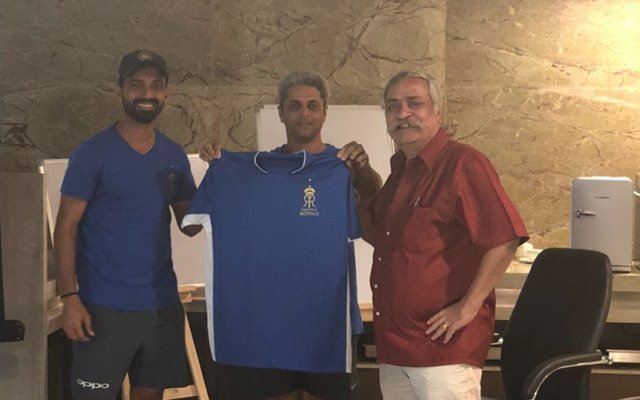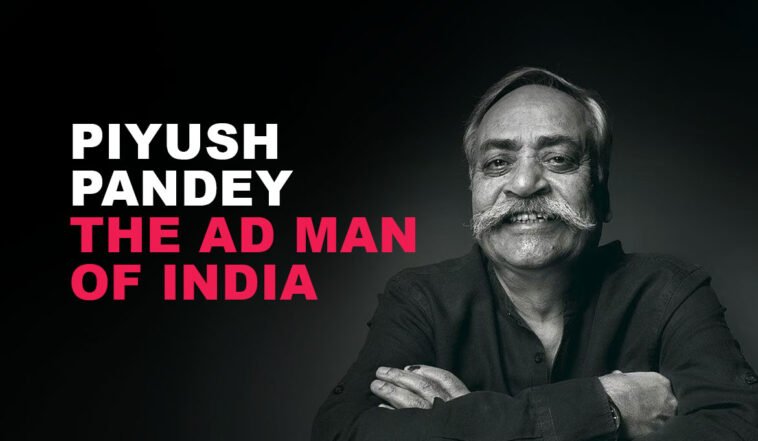When one speaks of Indian advertising, the name Piyush Pandey stands tall — synonymous with creativity, authenticity, and the unmistakable Indian storytelling voice that connects deeply with audiences. As the Chief Creative Officer Worldwide and Executive Chairman India of Ogilvy, Piyush Pandey has not only shaped the communication landscape in India but has also influenced global advertising with his human-centric creative philosophy.
🎨 The Early Years: From Cricketer to Copy Legend
Born and raised in Jaipur, Rajasthan, Piyush Pandey’s journey to the top of the global creative ladder is nothing short of remarkable. Before joining advertising, he was a first-class cricketer for Rajasthan — an experience that instilled in him the values of teamwork, discipline, and performance under pressure.

In 1982, he joined Ogilvy & Mather India (now Ogilvy), marking the beginning of a partnership that would redefine the way brands communicate in India.
💡 Crafting a Distinctly Indian Advertising Language
Before Piyush Pandey, Indian advertising often mirrored Western narratives. Pandey changed that forever. He brought in the “Indian idiom” — a storytelling style rooted in local culture, emotion, and language. His work made brands feel more relatable, human, and deeply Indian.
Some of his most iconic campaigns include:
- Fevicol – “The Ultimate Adhesive” campaign that turned a glue into a cultural metaphor for unbreakable bonds.
- Cadbury Dairy Milk – “Kuch Khaas Hai Zindagi Mein” celebrated the joy of small moments.
- Asian Paints – “Har Ghar Kuch Kehta Hai” turned homes into stories of memories and emotions.
- Bajaj Auto – “Hamara Bajaj” evoked a national sense of pride.
Each campaign reflected his belief that advertising isn’t just about selling — it’s about storytelling that resonates.
🌍 Leadership at Ogilvy: From India to the World
Under Pandey’s leadership, Ogilvy India became one of the most awarded creative agencies in Asia. His influence extended globally when he was appointed Chief Creative Officer Worldwide in 2019 — the first Indian to hold this position in Ogilvy’s history.
He continues to guide Ogilvy’s creative philosophy across markets, emphasizing local insight, emotional truth, and human connection as the cornerstones of great advertising.
🏆 Awards and Recognition
Piyush Pandey’s contributions have been celebrated globally. Some of his major accolades include:
- Padma Shri (2016) – one of India’s highest civilian honors for his contribution to advertising and communication.
- Lifetime Achievement Award at Clio Awards (2012).
- Asia’s Creative Person of the Year by Campaign Asia.
- Multiple Cannes Lions and Adfest Awards for creative excellence.
- Featured in The Economic Times’ “Most Influential People in Media” list year after year.
🧠 Philosophy: Simplicity, Emotion, and Indian-ness
Pandey often says, “If you can’t explain it simply, you don’t understand it well enough.”
His philosophy is built on clarity, empathy, and storytelling that mirrors the pulse of real people.
He believes that creativity is not about jargon or aesthetics — it’s about evoking emotion and action through simplicity. His ads are memorable because they connect — not through gloss, but through truth.
📘 Beyond Advertising: The Author and Mentor
Piyush Pandey is also the author of the book “Pandeymonium: Piyush Pandey on Advertising”, an insightful memoir that blends personal anecdotes with lessons from his four decades in advertising. The book is both a creative guide and a peek into the mind of one of the most influential ad men in the world.
He continues to mentor young creatives across India, encouraging them to look inward — to their roots, their people, their stories — to find authentic inspiration.
🌟 Legacy and Impact
Piyush Pandey didn’t just build ads — he built emotions that became part of India’s cultural memory. His storytelling made brands timeless, and his leadership has made Indian creativity global.
In a world where algorithms are rewriting how messages are crafted, Piyush Pandey remains a reminder that great advertising will always be about humanity first.


Comments